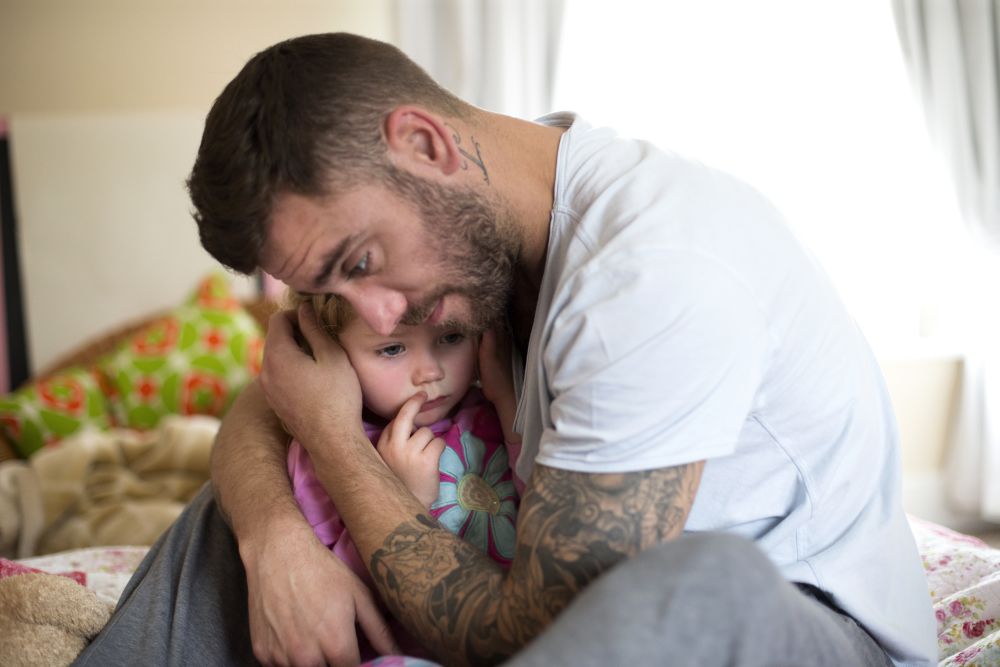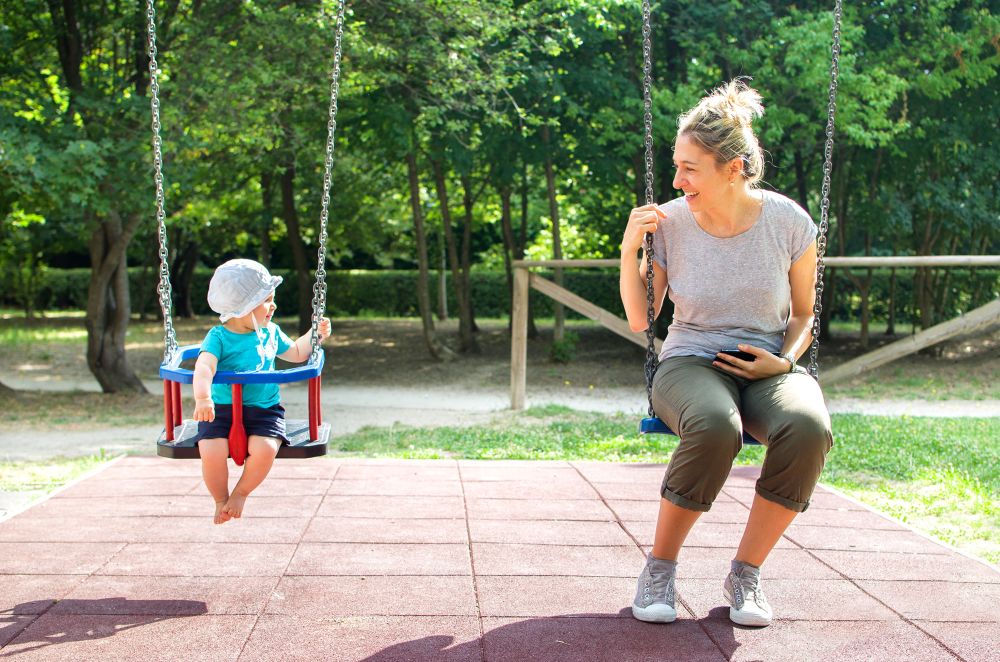Building a healthy brain
The world in which a young child grows up shapes the way their brain develops. The key to a healthy future, is a healthy start.
A mentally healthier society
The world around a child has a significant influence on their development so valuing the role of parents, carers and families is crucial. We need to invest in their mental health and their emotional literacy in order to build their capacity to foster healthy relationships, since this is the foundation for a child's future wellbeing. But we also need to prioritise mental health across society, building a supportive environment in which social and emotional development can be encouraged.
The impact of the world around us
A child's early relationships, environments and experiences can either support (positive protective factors) or inhibit (adverse experiences) healthy development.
Read on to discover how this works.
Positive protective factors
Positive protective factors are the nurturing relationships, environments and experiences that support healthy brain development and can help to protect against negative experiences. While primary caregivers are key to this, the network of people around a child and their parents can also play a significant role.
A strong relationship with a parent or a carer
So much of what a child learns comes from engaging with adults. Noticing, understanding and responding quickly to a child’s signals (particularly when they are under stress) helps them to develop their social, emotional and communication skills whilst building their independence. The relationship that forms in this way between a child and an adult is known as an ‘attachment’ and a significant amount of research has shown us that healthy attachment is hugely beneficial for children and their future outcomes.

Impact spotlight
Strong relationships
A child isn’t born with the ability to understand and control emotions, this has to be learned. A parent or carer can play a vital role in this process, helping a child to decipher their feelings and to learn how to manage them. For example, when a child has a stressful or frightening experience, a caregiver can be present and support the child, name what the child might be feeling, stay with that feeling (even if it is big and uncomfortable) and soothe them through a cuddle.
This can communicate to the child that having a full range of feelings (from happy to sad, excited to angry) is important. And this should not be underestimated: studies have shown that our ability to manage emotions is more important than socioeconomic status or IQ in predicting things like our future health, wealth and life satisfaction.
Stimulating environments
A young child’s environment has a crucial role in their early development. Interactions with a caregiver as well as things like toys and books, all help to provide a child with the stimulation which can fire their imagination and improve their learning and social skills. They can experience this at home (known as the home learning environment) in early education settings (e.g. nurseries, playgroups and pre-school) or other public spaces.
Access to nature and outdoor spaces, including parks and playgrounds, also provide opportunities to boost physical and mental health, and offer vital opportunities for social interaction with other children.
Across all of these spaces, children have a basic desire to interact which is often expressed through play. Play is a crucial part of development, since it’s one of the ways in which a child discovers new things.

Positive experiences
Positive experiences play a huge role in the development of a young child by giving them the freedom, security and resources to develop their skills. This is true across all aspects of learning, for example through resources and activities which help to boost a child’s reading or by providing opportunities for a child to learn how to interact with others in a group.
Having a mix of these skills is crucial since together they prepare a child to be ready to learn socially, cognitively and emotionally when they reach school. Children who arrive at primary school with what is termed this ‘good level of development’ are more likely to succeed in secondary school and this knock-on effect then makes them less likely to experience poor health and low pay as adults.
Adverse experiences
Challenging, sometimes negative, experiences will occur in the course of our lives and during early childhood our brains and bodies develop to deal with them. But if these experiences are repeated frequently or become severe, they can start to impact our long-term development.
Neglect and abuse
Neglect and more extreme forms of abuse can both have a long-term impact on the development of a child’s brain. When a child is deprived of a nurturing relationship with an adult this limits the number of positive cues and prompts which their brain receives, meaning that some important connections are delayed or remain weak. These situations can also subject a child to severe amounts of stress, which can affect the functioning of the immune system, among other things.

Impact spotlight
Neglect & Abuse
Recent research by Harvard University has shown that exposure to prolonged stress from childhood abuse or neglect experiences, can have lots of different physical effects on interconnected systems of the body, including weakening the immune system, making those children more susceptible to chronic conditions in later life such as heart disease, depression, cancer and dementia.
Challenging household environments
Not all children experience direct abuse or neglect, but many grow up in households with caregivers or family members who experience different challenges in their lives including a parent with an addiction, a parent with mental health difficulties such as depression and parents in a high conflict relationship or one that breaks down. These situations can all impact on the ability of a caregiver to respond to and bond with their child, increasing stress and decreasing the number of positive interactions a child might receive.

Impact spotlight
Challenging household environments
Poor parental mental health in the early years affects around one in five mothers and one in ten fathers. Although some parents experiencing mental health difficulties are still able to provide sensitive, nurturing care to their children, overall mental health is a risk factor for difficulties in the parent infant relationship. We are now seeing more research that links children’s early exposure to poor parental mental health during pregnancy and in the first five years of their life with increased later vulnerability to a range of poor developmental outcomes such as language development, educational attainment, their own mental health problems and problems in their social relationships.
Caring for the Carers
Nurtured children are the consequence of nurturing adults: to invest in children means also investing in the people around them – the parents, carers, grandparents, early years workforce and more. Knowledge and skills are important, but so too is mental health. For parents and carers for example, it’s important to remember that they don’t live in a vacuum, they need support from both inside and outside the family.
Our future is not predetermined
A child’s life is not determined in the first 5 years.
Although we’ve seen that early childhood can influence later life outcomes, our future is not pre-determined.
Those of us who have experienced adversity can be supported in the challenges we have faced and when it comes to the next generation we can all play our part in providing the right relationships, environments and experiences for babies and young children.




